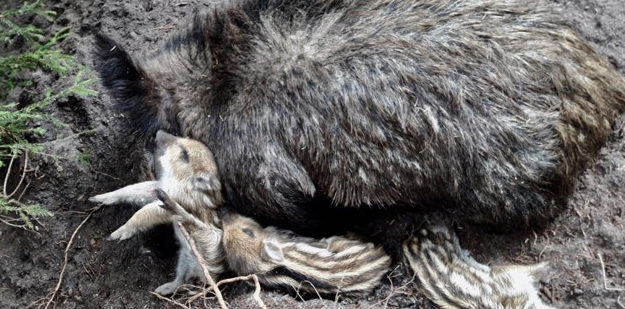
17 May 2018 DEEP CONCERNS EXPRESSED BY STAKEHOLDERS REGARDING THE FIGHT AGAINST AFRICAN SWINE FEVER
On 16 May 2018, MEP Iveta Grigule-Pēterse (ALDE, LV) organised with the help of FACE a conference on “The Threat of African Swine Fever in Europe: The Key Role of Hunters” in the European Parliament. Different stakeholders expressed the need for better knowledge on wild boar biology, more financial resources to support research and stakeholder incentives to combat African Swine Fever (ASF) and stronger awareness-raising. It was stressed that there is no one size fits all solution, but rather the need for specific measures to be adapted for specific situations.
The representative of the European Commission DG SANTE, Mr. Zilvinas Ilevicius, presented the initiatives which the Commission has put in place to tackle the problem of ASF. He expressed the need for greater collaboration and communication and said that the input of stakeholders is very important for the Commission to continue with an effective ASF control strategy. The current ASF control and funding measures are laid down in specific legislation and EU strategy on ASF which all can be found in the website of DG SANTE.
Dr. Sandra Blome, Deputy Director of the Institute of Diagnostic Virology, Friedrich Loeffler Institute in Germany (www.fli.de), debunked some of the myths about regarding ASF. She stated that several initial presumptions by scientists at the beginning of the ASF outbreak turned out to be completely wrong. She concluded that there is no one measure you can take that will work in all occasions. We should rather speak about a toolbox full of measures that depending on the specific circumstances might work in one case but not in another. Hunters should furthermore intensify the surveillance in risk zones.
Mr. Mārtiņš Seržants of the Latvian State Veterinary and Food Service expressed the need for more knowledge on wild boar population biology. He concluded that hunters are an indispensable partner to understand behaviour of ASF in the wild boar population.
For Linda Dombrovska, FACE Vice-President, there are still more questions than answers regarding ASF. Only through collaboration and by sharing information we can effectively tackle ASF. Hunters are the custodians of wildlife that contribute to the management and surveillance of ASF. However devastating ASF is, we need to continue the management of wildlife in general and to consider the effect on other species and the environment. One approach does not fit all unfortunately.
Oana Neagu, Director of General Affairs at Copa-Cogeca, stressed that awareness-raising is very important for all who can contribute to spread or management of ASF. Biosecurity is key! More research is needed and enough financial support to help member states and stakeholders affected to efficiently fight against ASF. Last but not least, she argued that the legislation is sometimes not flexible and adaptable enough to cater for effective management. She also highlighted the large economic losses for farmers.
MEP Grigule-Pēterse clearly summarized: the only way to effectively manage ASF is by working together and exchanging information to generate case by case solutions. Fifty participants from the different stakeholder groups involved in the surveillance and control of ASF welcomed the speakers’ presentations and messages on ASF management.

Karte: ASF im Baltikum, in Polen, der Tschechischen Republik, Rumänien und der Ukraine, Stand 15.05.2018, 08:50 Uhr

